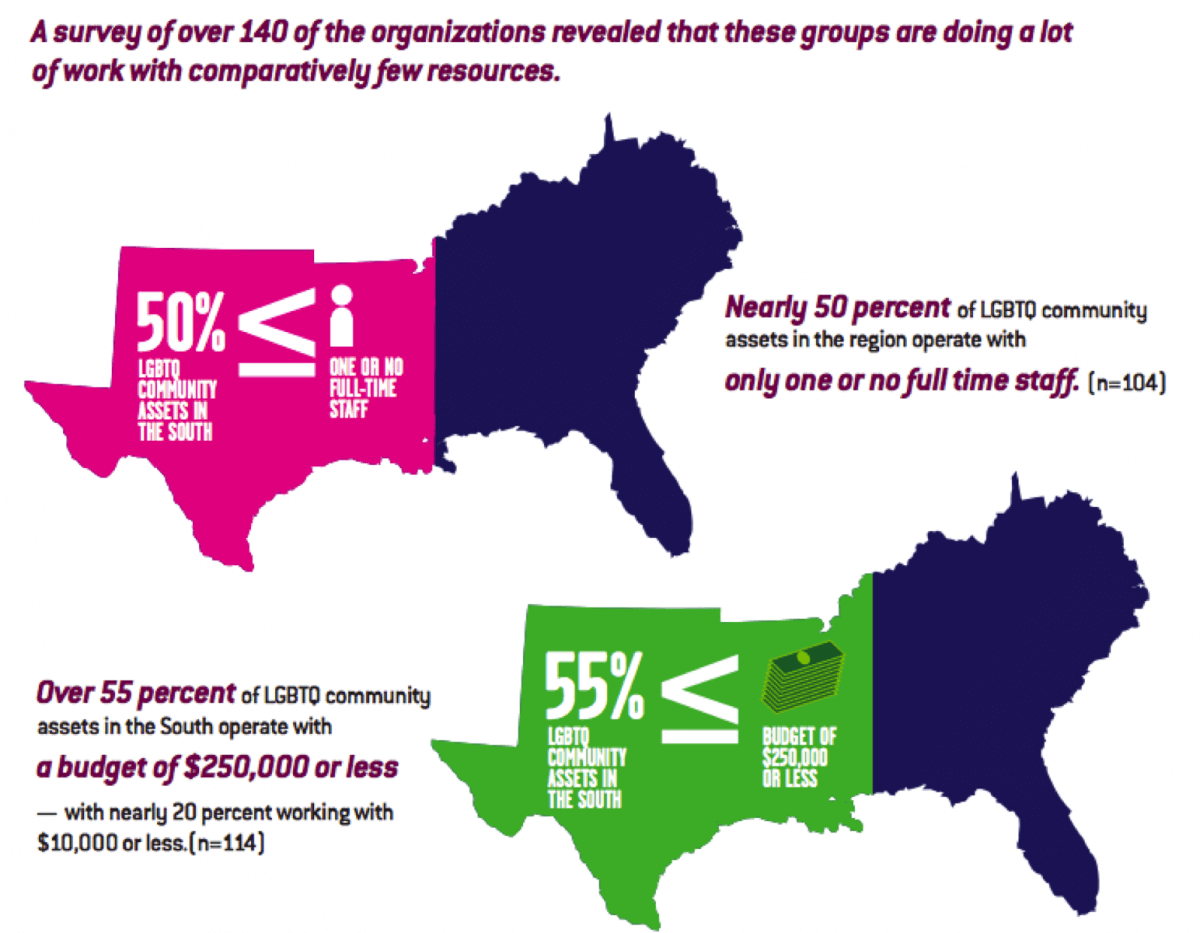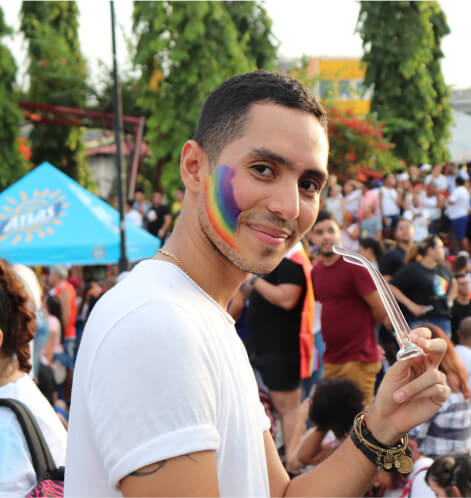Equality Federation Contributes to Report on LGBTQ Assets in the South

One of the greatest challenges for the state-based LGBT movement is securing funding and resources to do the hard but necessary work on the ground in the communities we call home.
For groups in the South, this continues to be a struggle. LGBT advocates in this region work to win equality for their communities with limited funding and capacity, all while facing often intense political and religious opposition. While the LGBT movement in the South is rich in leaders, it lacks the financial resources necessary to achieve all of its goals.
Now, there is a new resource that offers recommendations for how funders can help strengthen the impressive array of LGBTQ community assets in the South.
As part of their LGBT Southern Funding Project, Funders for LGBTQ Issues has released their second report of the Out in the South report series: Part Two: LGBTQ Community Assets in the U.S. South. This report identifies more than 750 LGBTQ community assets in the South, and offers recommendations for several funding strategies based on a comprehensive scan of the region's LGBTQ community assets, a survey of more than 200 organizers and service providers working in the South, and in-depth interviews with 30 LGBTQ leaders.
As the strategic partner to state-based organizations, the Federation was highlighted in this report as a key partner to many of the LGBTQ community assets in the South, as were many of our members who are doing amazing work in the region.
LGBTQ Community Assets in the U.S. South provides a look at: the universal themes of the regional climate; the community assets that make up the region, ranging from small grassroots organizing groups to multi-service community centers; the allies and strategic partnerships of the region; the challenges LGBTQ groups face; and recommendations for funding strategies.

Regional Climate
While each of the 14 Southern states is unique, the report found several common themes about the current overall regional climate:
- The region’s generally conservative culture still makes it difficult for many LGBTQ people to come out, presenting challenges for both organizers and service providers.
- Severe racial disparities and poverty deeply affect Southern LGBTQ communities.
- Rapid advancements for marriage equality are creating new opportunities for dialogue around LGBTQ issues, although some leaders also fear that it could lead to backlash locally.
- National LGBTQ organizations have recently begun to devote more attention to the South, bringing welcome and needed resources but also presenting challenges for local organizations with limited resources.
While the report found over 750 community assets in the South, more than two-thirds of these assets are grassroots community groups, and more than 100 are LGBTQ advocacy groups, including Federation member organizations. These organizations are greatly understaffed and underfunded, making capacity-building one of their greatest challenges and areas of need.
With the lack of financial resources, partnerships with other LGBTQ and social justice groups have become necessary, as leaders use creative strategies and build cross-cutting intersectional alliances to get the work done.
One way the Federation is partnering with groups in the South is through our Southern Leadership Summit, which builds peer relationships, leading to shared strategy and ideas for cross-training.
We are working to offer assistance with fundraising, board development, advocacy planning, and leadership coaching to build sustainable power in the region. We also help state equality groups build stronger networks and partnerships with LGBT and non-LGBT organizations in their states. As I say in the report, although groups with different theories of change may never work hand in hand, they can communicate and not step on each other’s efforts; and in some places there could be a lot more collaboration.
While a shared regional climate and the creation of intersectional alliances and coalitions has helped build a strong LGBTQ movement in the South, only so many victories can be won with such little financial support. LGBTQ Community Assets in the U.S. South offers a number of recommendations for funding strategies with potential for high impact in LGBTQ communities:
- Build capacity of proven groups in all 14 states, with an emphasis on building diverse revenue and financial sustainability.
- Maintain and grow direct service capacity, especially to address basic economic needs, HIV/AIDS, and other health issues.
- Strengthen intersectional organizing to leverage the current “marriage moment” for longer-term culture change and policy gains at the state level.
- Leverage existing alliances and transition them to long-term relationships of solidarity.
- Support efforts to increase LGBTQ visibility and share the stories of LGBTQ Southerners.
- Explore creative strategies for assessing intermediate and long-term process in the South.
At the Federation, we support efforts like the LGBT Southern Funding Project whose goal is to expand the scale and impact of funding for LGBTQ communities in the U.S. South.
Click here to download Part Two: LGBTQ Community Assets in the U.S. South.


.jpg)
.jpg)
.jpg)
.jpg)
.jpg)
